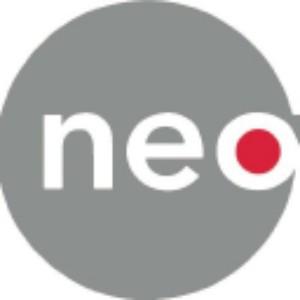Independent Publication Reports Neovasc Reducer™ Demonstrates Cost Savings
Neovasc, with stock symbol NVCN, recently announced positive findings from cost-effectiveness studies for its Neovasc Reducer™ therapy, aimed at treating refractory angina. Conducted by ALTEMS in Italy, the analyses showed that the Reducer therapy not only increases patient quality of life but is also cost-effective, potentially saving the National Health Service substantial costs starting in year four. The therapy addresses a growing patient demographic with limited treatment options, which may further solidify Neovasc's position in the cardiovascular market.
- None.
- None.
Insights
Analyzing...
VANCOUVER and MINNEAPOLIS, Feb. 04, 2022 (GLOBE NEWSWIRE) -- via NewMediaWire -- Neovasc, Inc. (Neovasc or the Company) (NASDAQ, TSX: NVCN) today announced the publication of cost-effectiveness studies supporting the use of the Neovasc Reducer™ (“Reducer”).
The two analyses, authored by Americo Cicchetti, Graduate School of Health Economics and Management (ALTEMS) at the Catholic University of Sacro Cuore, Rome, included a budget impact analysis and a cost-utility analysis. The evaluations, both of which were positive for the Reducer therapy, considered direct healthcare costs from the perspective of the National Health Service in Italy. The budget impact analysis examined a five-year timeframe, while the cost-utility analysis utilized a "lifetime" horizon.
Quality of life measures
- The budget impact analysis and cost-utility model each demonstrated that the Reducer therapy can lead to an increase in the quality of life in patients with refractory angina.
Cost effectiveness measures
- In the cost-utility analysis, the Reducer therapy received the best possible outcome, a dominance profile, meaning the intervention is not just cost-effective, but cost-saving for the healthcare system.
- In the budget impact analysis, the higher initial costs due an initial ramp in Reducer implants are adequately compensated in the short term by the better clinical outcomes, with consequent savings for the National Health Service in Italy starting in year four.
The authors highlight the growing number of patients suffering from persistent and disabling symptoms of angina – in part due to the advances in pharmacological and interventional fields that have prolonged the survival of patients.
Dr. Fabrizio Oliva, Director of Cardiology and Interventional Cardiology, Niguarda Hospital, Milan, and President-elect of the Italian National Association of Hospital Cardiologists, commented, “We see patients with refractory angina frequently. A therapy that improves quality of life and is less costly to implement is highly unusual and should be highlighted. The data are particularly relevant in the context of strong budget constraints in many countries – a constraint that has been exacerbated by the COVID pandemic.”
“The data from the ALTEMS analyses are particularly relevant because patients with refractory angina have limited treatment options, and they tend to place a hefty financial burden on healthcare systems,” commented Fred Colen, President and Chief Executive Officer of Neovasc. “The new Italian publication builds upon our previously reported cost-effectiveness data and recent reimbursement wins in the United Kingdom, France, Germany, and the United States and it demonstrates fantastic progress against our objectives.”
About Reducer
The Reducer is CE-marked in the European Union and being studied in the United States in the COSIRA-III clinical trial for the treatment of refractory angina, a painful and debilitating condition that occurs when the coronary arteries deliver an inadequate supply of blood to the heart muscle, despite treatment with standard revascularization or cardiac drug therapies. It affects millions of patients worldwide, who typically lead severely restricted lives as a result of their disabling symptoms, and its incidence is growing. The Reducer provides relief of angina symptoms by altering blood flow within the myocardium of the heart and increasing the perfusion of oxygenated blood to ischemic areas of the heart muscle.
Refractory angina, resulting in continued symptoms despite maximal medical therapy and without revascularization options, is estimated to affect 600,000 to 1.8 million Americans, with 50,000 to 100,000 new cases per year.
About Neovasc Inc.
Neovasc is a specialty medical device company that develops, manufactures, and markets products for the rapidly growing cardiovascular marketplace. Its products include Reducer, for the treatment of refractory angina, which is not currently commercially available in the United States and has been commercially available in Europe since 2015, and Tiara™ for the transcatheter treatment of mitral valve disease, which is currently under clinical investigation in the United States, Canada, Israel and Europe. For more information, visit: www.neovasc.com.
Contacts
Investors:
Mike Cavanaugh
ICR Westwicke
Phone: +1.617.877.9641
Email: Mike.Cavanaugh@westwicke.com
Media:
Sean Leous
ICR Westwicke
Phone: +1.646.866.4012
Email: Sean.Leous@westwicke.com
Forward-Looking Statement Disclaimer
Certain statements in this news release contain forward-looking statements within the meaning of the U.S. Private Securities Litigation Reform Act of 1995 and applicable Canadian securities laws that may not be based on historical fact. When used herein, the words "expect", "anticipate", "estimate", "may", "will", "should", "intend," "believe", and similar expressions, are intended to identify forward-looking statements. Forward-looking statements may involve, but are not limited to, the results of the cost-effectiveness studies, the growing incidence of refractory angina and the growing cardiovascular marketplace. Forward-looking statements are based on estimates and assumptions made by the Company in light of its experience and its perception of historical trends, current conditions and expected future developments, market and other conditions as well as other factors that the Company believes are appropriate in the circumstances. Many factors could cause the Company's actual results, performance or achievements to differ materially from those expressed or implied by the forward-looking statements, including those described in the "Risk Factors" section of the Company's Annual Information Form and in the Management's Discussion and Analysis for the three and nine months ended September 30, 2021 (copies of which may be obtained at www.sedar.com or www.sec.gov). These factors should be considered carefully, and readers should not place undue reliance on the Company's forward-looking statements. The Company has no intention and undertakes no obligation to update or revise any forward-looking statements, whether as a result of new information, future events or otherwise.







